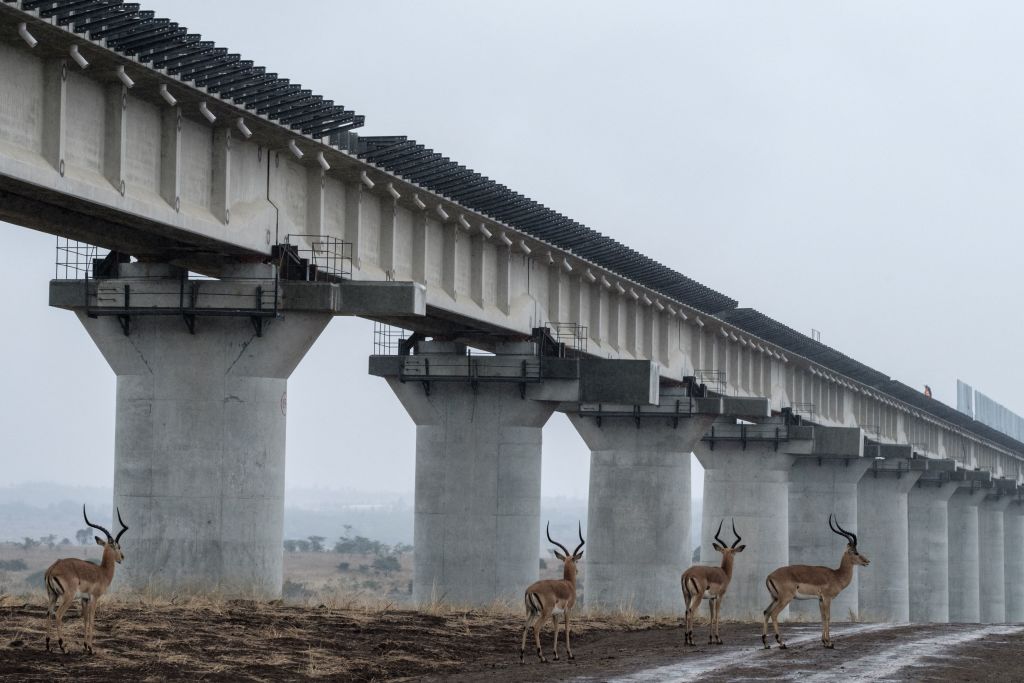As Chinese Loans Come Due, African Borrowers Face Economic ‘Midnight’
ADF STAFF
After more than a decade of heavy borrowing from China, the bill is coming due for some African countries that find themselves teetering on the brink of economic collapse.
China ranks as the largest single lender to African countries, holding more than $73 billion in debt across the continent. In places such as Angola — China’s biggest African borrower — and Zambia, government borrowing from China has paid for high-priced infrastructure projects from stadiums to railroads.
“In a lot of the world, the clock has hit midnight,” Harvard University economist Ken Rogoff told The Associated Press recently. “China has moved in and left this geopolitical instability that could have long-lasting effects.”
The International Monetary Fund and World Bank have reported that 22 African countries face financial distress because of their debt loads. High debt loads can cripple a country’s ability to provide services to its citizens as ever more of its tax revenue goes to pay off loans.
In many cases, those countries owe the largest chunk of their debt to China, which has shown repeatedly that it is unforgiving in its demand for repayment. Among African countries, Angola ($25 billion), Ethiopia ($7.4 billion), Kenya ($7.4 billion), and the Republic of Congo ($7.3 billion) owe China the most.
Kenya serves as an example of what may be ahead for other countries as they confront their Chinese debt.
Kenya spends more than half of its national revenue on debt, up from about one-third in 2022. Treasury officials expect payments to Exim Bank of China alone to more than double to $800 million in the budget year that starts this month. In response to growing financial strain, the government will reduce its payments with the new budget that starts in July. Lending by China has, in turn, slowed.
In late May, a report by Reuters and cybersecurity researchers determined that Kenya’s government computer systems had been attacked repeatedly in recent years by Chinese hackers seeking details about its debts to Beijing.
Kenya was among Africa’s earliest participants in China’s Belt and Road Initiative, relying on Chinese funding to build the Standard Gauge Railway, establish an inland port at Naivasha, and upgrade the country’s main international port at Mombasa.
Between 2013 and 2021, Kenya’s debt swelled from $16 billion to more than $71 billion, much of it owed to China. Kenya’s debt, both foreign and domestic, now equals about 70% of its gross domestic product.
About one-third, or $12 billion, of Kenya’s current $36 billion in foreign debt is tied to government-owned Development Bank of China and Exim Bank of China. Although they are backed by the government, both banks function as commercial lenders offering loans at interest rates nearly double the rates of multinational lenders such as the IMF or World Bank.
As commercial lenders, the banks refuse to write off loans in the same way China has written off its relatively small amount of direct government lending. Those loans often come with confidentiality clauses, making it difficult for the public to know how much their government owes.
Kenyan President William Ruto is among the few leaders to reveal the terms of Chinese lending. He published the loan documents for Kenya’s $4.7 billion Standard Gauge Railway, which was built by China and projected to be profitable based on inflated revenue forecasts that the railway has failed to meet.
Government economists say Kenya’s debt remains manageable, but it is already forcing the government to make some difficult choices. Confronted with the choice of paying China or paying government workers, the Kenyan government lately has chosen to pay China.
“When maturities bunch up, or revenue falls short, or markets shift, something has to give,” Ruto’s economic advisor David Ndii recently posted on Twitter. “Salaries or default? Take your pick.”


Comments are closed.